Tuck Jumps
Handstand
TUCK JUMPS
Tuck jumps can be a confidence booster when it comes to preparing for handstands. They’re not the first step in the course of preparation, but they’re definitely a way of identifying where strength and proprioception require attention.
By performing tuck jumps, we build strength and bring awareness to how we use our glutes, hamstrings, hip flexors, and shoulders, which are essential for supporting our body weight when we’re inverted. More than this, in order to find the best alignment to support ourselves while inverted, we learn the articulations of the body in places like the pelvis, rib cage, and shoulders.
In today’s video, Matt demonstrates drills that move us towards finding confidence in our handstand development. Ultimately, we develop increased strength and balance.
ITALY RETREAT
REGISTRATION NOW OPEN
- Spa & Yoga Retreat
- Close to the coast line and beaches
- 2 spa days included (sauna, hot tub, Turkish bath)
- Morning and early-evening yoga with Matt
- Daytime free for adventures or to enjoy Ayurvedic massage and treatments
- Connect with incredible yogis from around the world!
- ALL LEVELS and all ages 18-85 appropriate
- Skillfully guided experience: yoga, meditation, breathwork
- Biomechanics and inspirational philosophy
- Welcoming and communal group of yogis!
HANDSTAND PREPARATION POSITIONS
Handstand Preparation I
With the support of a chair, hip flexor activation is one thing this stage of preparation for tuck jumps and handstands works on. We do this by focusing on pressing both feet down into the chair. This action is also essential because it’s always part of the setup for the drills that follow.
Handstand Preparation II
This time, we bring one leg straight up in the air while still pressing the other leg towards the ground or into the chair. Rolling forward with the torso and pressing the top leg back helps us use strength in the glutes and hamstrings.
Handstand Preparation III
Here, we alternate the legs by going from a tuck position to a lengthened position.
WATCH THE VIDEO
TUCK JUMPS: FLOAT UP TO HANDSTAND
STATIC PELVIC ALIGNMENT
In this stage of preparation for tuck jumps, we pass through Handstand Preparations I & II. Setting up the pelvis is crucial for achieving the alignment necessary for successful jumps. Matt demonsrates a posterior pelvic tilt, which helps stabilize the lower back and engage the core effectively. He is careful to squeeze his knees together, creating unified strength in the lower body. This alignment not only enhances balance but also facilitates a smoother transition into the jump when we’re ready to explore. Additionally, Matt actively stretches his shoulders up to his ears, being careful to keep the arms active and straight. This engagement ensures that his arms are strong and ready to support the weight of the body during the handstand. By focusing on these key elements, he sets a solid foundation for mastering the tuck jump and progressing towards the handstand.
200 HOUR ONLINE TEACHER TRAINING
GET CERTIFIED & DEEPEN YOUR YOGA PRACTICE
- Deepen your yoga practice
- Build confidence speaking in front of groups in person and online
- Learn foundational class structures and templates
- Learn techniques for a wide range of yoga postures
- Get certified and highly qualified to teach yoga
- Yoga Alliance Globally Recognized Certification Program
JUMP & LAND
Even when we begin to explore tuck jumps, there are still stages that help us to ease into the exploration.
We start in an “L-Hop” and then take both feet to a wall behind us, with the knees bent. Staying in that position while working towards stacking the ribcage, hips, and shoulders serves to create the foundation for us to explore the jump.
At this next stage, Matt continues to use a block behind the wrists and forearms in order to maintain the proper position. He reminds us then when we implement the jump, it’s common for us to lean back when we need to be leaning forward.
If you’ve practiced handstands with Matt before, then you’ll know that the “lean, grip, push” elements are always the basis for handstands; therefore, they also apply to tuck jumps.
300 HOUR ONLINE TEACHER TRAINING
GET 500 HOUR CERTIFIED AS A MASTER TEACHER
Master your skill set as a teacher through refined techniques, anatomy, biomechanics, sequencing, philosophy, meditation techniques, theming, yoga business, and much more!
- Get 500 hour certified
- Learn anatomy, biomechanics, asana techniques
- Expand your teaching skills
- Masterful sequencing and verbal delivery
- Learn meditation and breathwork techniques
- Transformative tools: theming, dharma talks, satsang
PREPARE THE FLOAT
As we go through the preparations, we learn that without the static holds and the practice of control, we would never find the “float” or “hang time” in our tuck jumps and ultimately our handstand.
The stronger and more stable we are, the lighter we will feel. Yes, a tremendous amount of effort is required to build the necessary strength, but the reward is ease when our bodies are prepared. Preparation is the path to execution.
Matt’s Italy Retreat in April 2025 is now open for registration, and spaces are limited. Secure your spot for the ultimate guidance and support of your practice.
The 200 Hr. Teacher Training: Click Here to See the Next Start Date
The 300 Hr. Advanced Teacher Training: Click Here to See the Next Start Date
Article by Trish Curling
Video Extracted From: Mobility Immersion
ONLINE ANATOMY COURSE
- Accessible, exciting, and easy to learn
- Anatomy and biomechanics for yoga
- Appropriate for both teachers and students
- Learn joint alignment vs pose alignment
- Demystify yoga poses and transitions
- Release aches and pains
- Learn how to avoid common injuries
- Caters to all levels with modifications and props
- 20 hours Continued Education Credits with Yoga Alliance
- 20 hours toward Chromatic Yoga Certification and 300 Hour
- Lifetime access
Continue Learning
Redefine Chaturanga
Redefine ChaturangaALIGNMENTREDEFINE CHATURANGA To redefine Chaturanga, we first have to be willing to challenge what we think we already know. Many of us were taught a narrow-hand, elbows-tight variation of the pose—elbows hugging the ribs, hands close beneath the...
Tight Hips
Tight HipsHIP MOBILITYTIGHT HIPS When working to release tight hips, most people instinctively go straight for deep stretches. But one often overlooked area that holds a surprising amount of tension is the adductorS (the inner thigh muscles) that connect to the...
Retraction Of The Scapula
Retraction Of The ScapulaSHOULDER ACTIONSRETRACTION OF THE SCAPULA It may appear that scapular retraction holds less weight in finding deeper backbends, but this action can be quite significant in what we experience when it comes to strength, stability, and...
Conquering Compass Pose
Conquering Compass PoseSURYA YANTRASANACONQUERING COMPASS POSE Conquering Compass Pose isn’t about forcing your leg behind your shoulder—it’s about understanding and participating in the muscular coordination that makes the posture possible. The real power comes from...
Leg Over Head Pose
Leg Over Head PoseEKA PADA SIRSASANALEG OVER HEAD POSE Leg Over Head Pose is one of those postures that challenges not only our bodies but also our mindset. When faced with a seemingly impossible pose, we tend to respond in one of three ways: dismissing it as...
Spanda In Backbends
Spanda In BackbendsSIDE PLANKSPANDA IN BACKBENDS Spanda in backbends is the key to creating both stability and freedom in spinal extension. Backbends are not just about bending; they require a balance between expansion and controlled engagement to prevent excessive...
THE FREE TECHNIQUE PACK
When You Subscribe, You Will Get Instant Access to
- the Technique Pack: 15 yoga pose breakdowns
- exclusive online course discounts
- exclusive blogs and videos
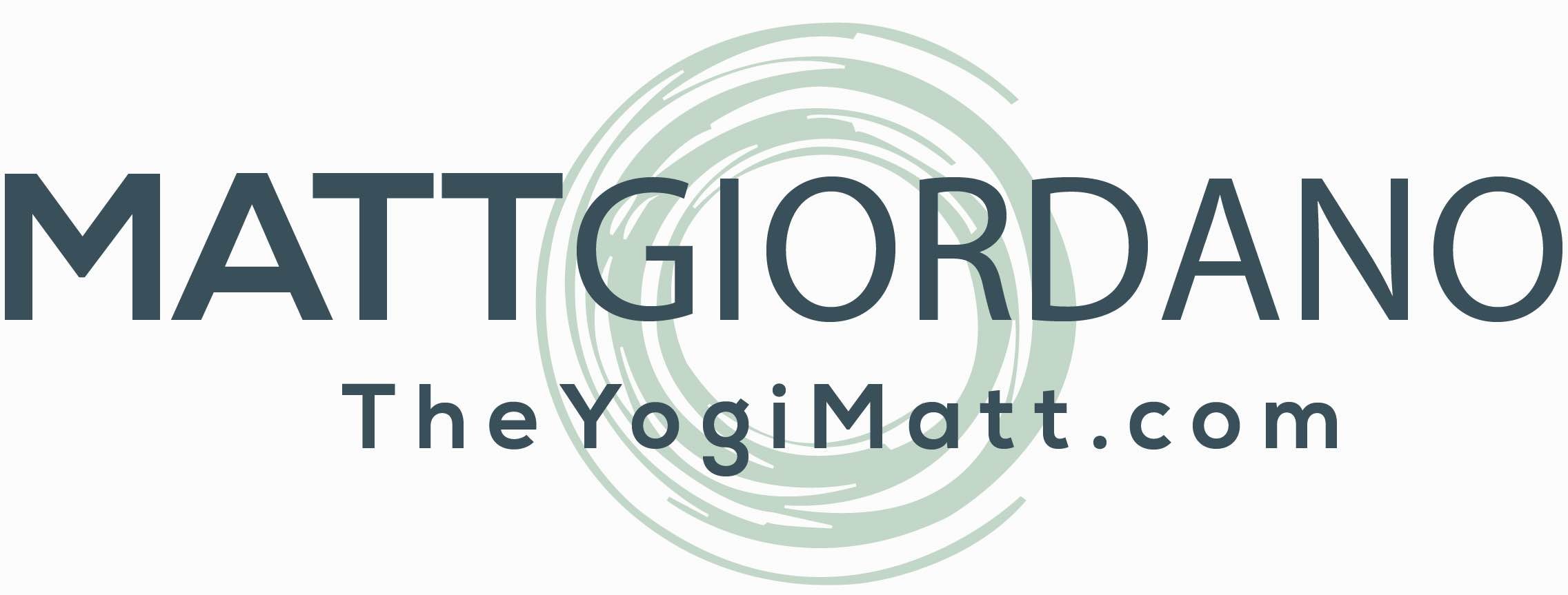




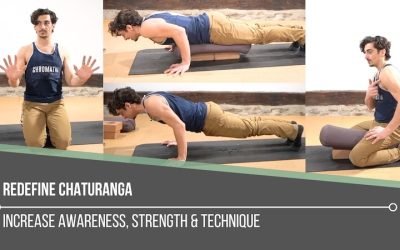
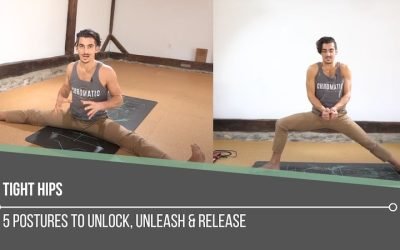
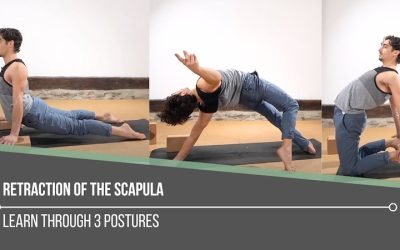
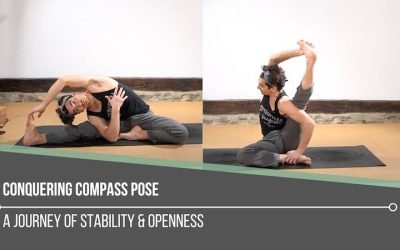
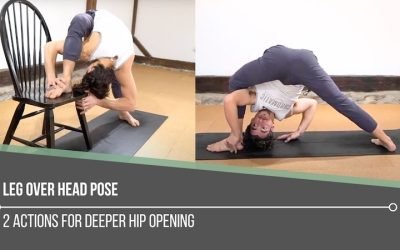
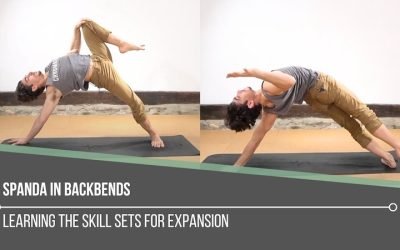


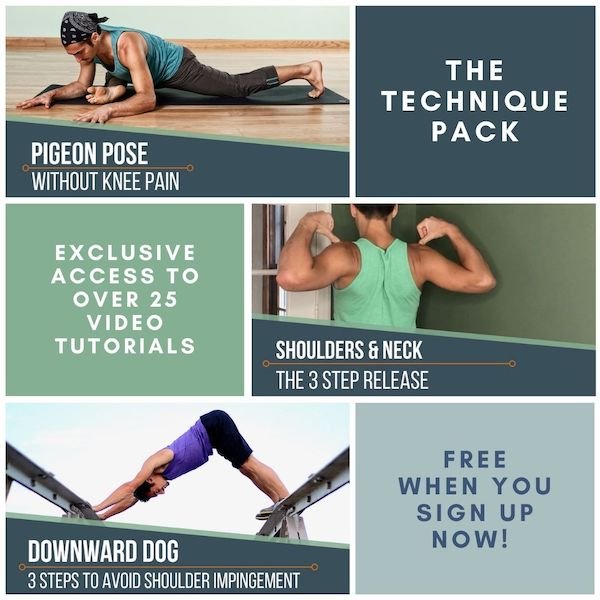
0 Comments